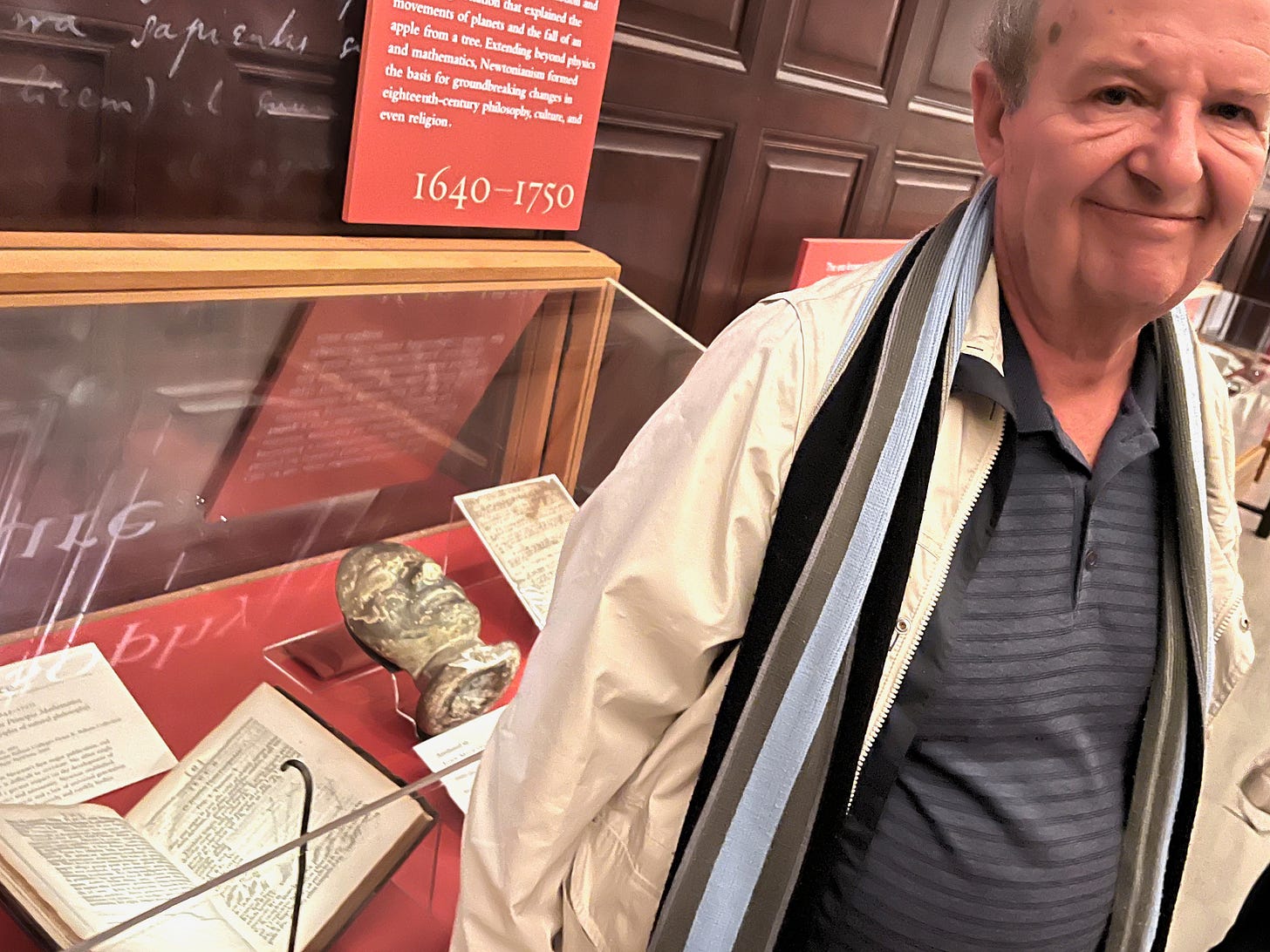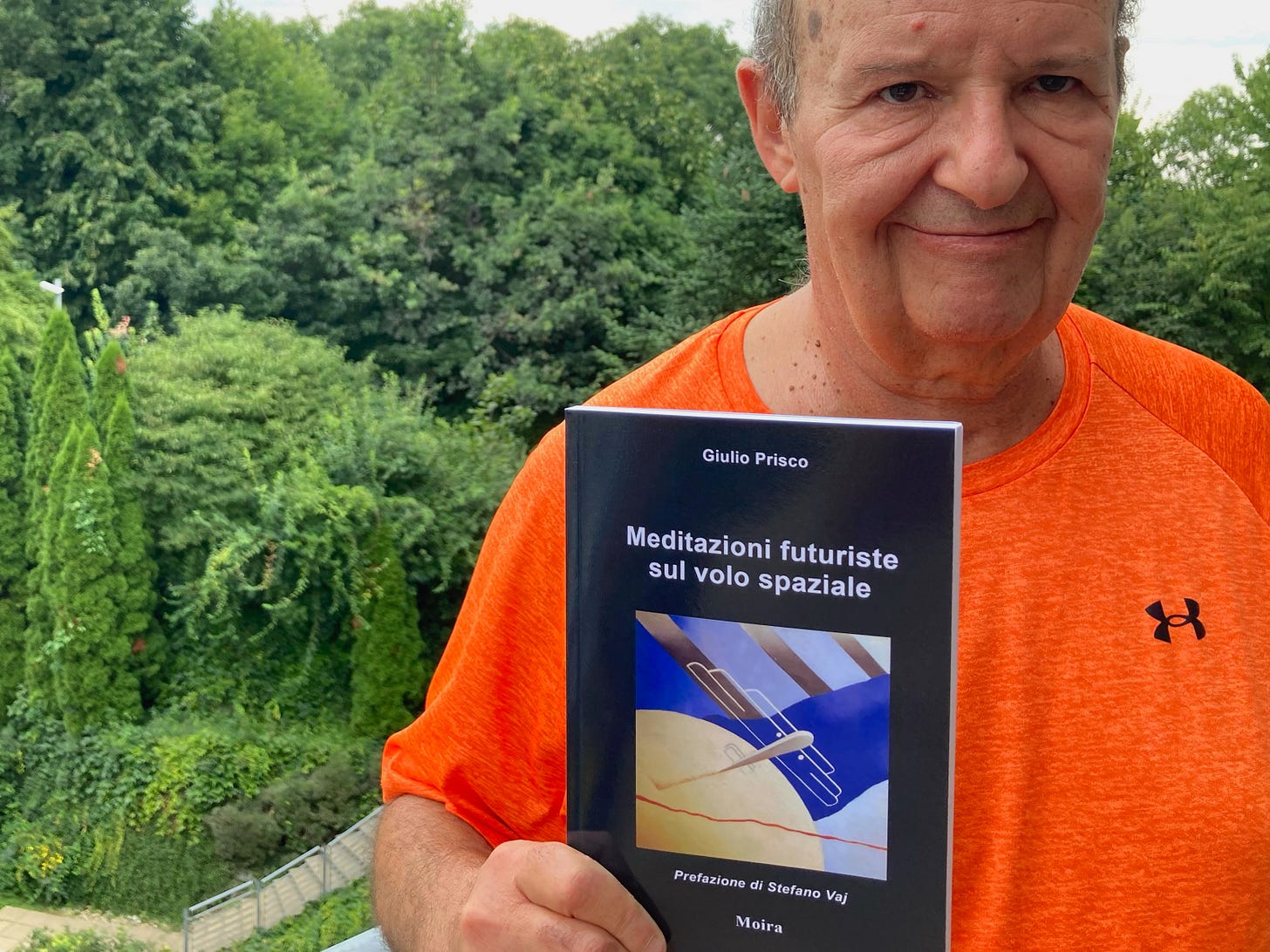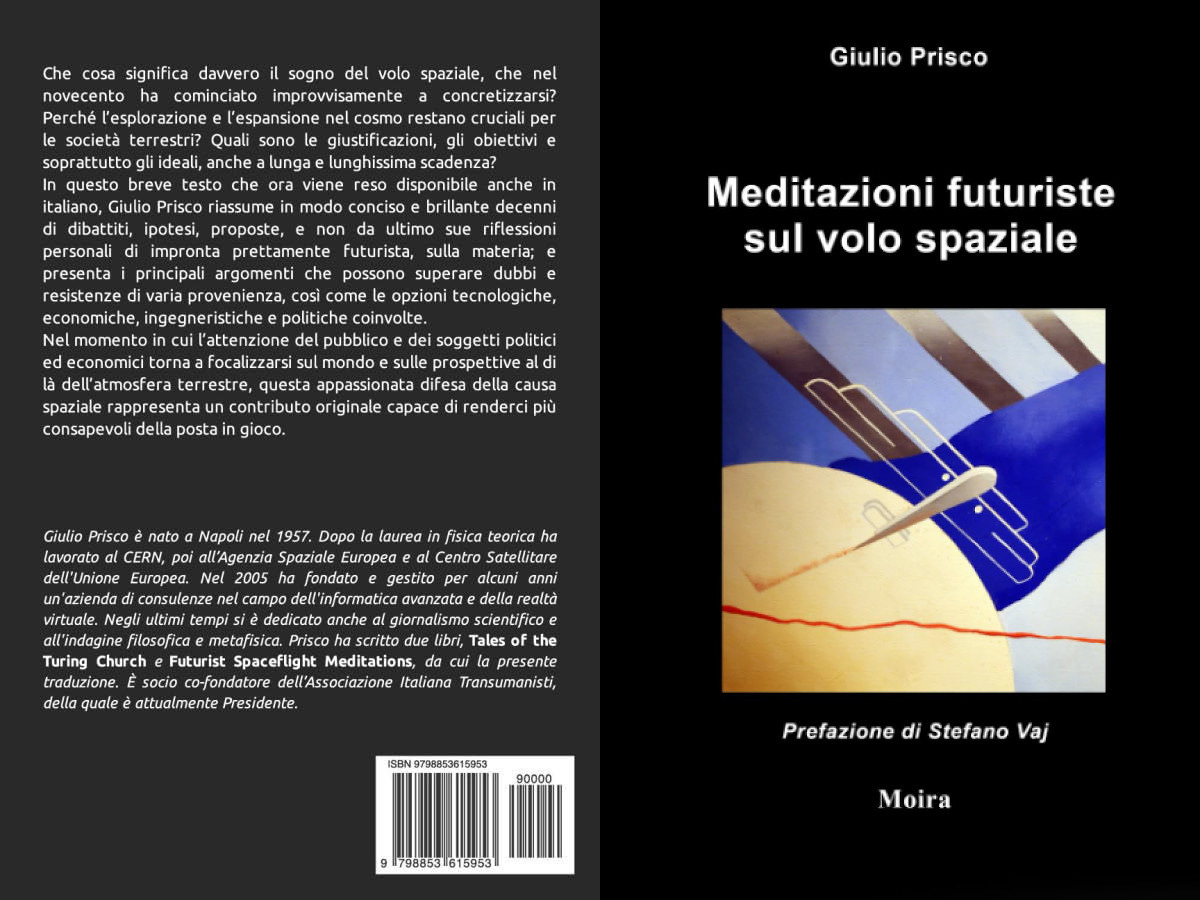Book project: Irrational mechanics
Narrative sketch of a futurist science & a new religion.
Greetings to all readers and subscribers, and special greetings to the paid subscribers!
Please scroll down for the main topic of this newsletter. But first:
Here’s the Italian translation of my spaceflight book: “Meditazioni futuriste sul volo spaziale” (2023). I wish to thank Stefano Vaj for his brilliant preface. Amici italiani, leggete e meditate!
My new book, to be published in 2024, will be titled “Irrational mechanics: Narrative sketch of a futurist science & a new religion.” I decode the title in the draft Introduction below.
The title I previously has in mind was “Astounding universe, amazing grace,” which is now the title of the second chapter in the book draft.
In the next few months I’ll be publishing (very) early drafts of some chapters in this newsletter. The drafts will be partly paywalled and fully available to paid subscribers.
In a few months I’ll make a revised version of the entire draft available to a group of early readers for comments and suggestions. All paid subscribers to this newsletter will be invited to the group of early readers.
UPDATE (March 2024): The draft of my new book “Irrational mechanics: Narrative sketch of a futurist science & a new religion” is now open to a group of early readers.

So here’s a very early draft of the Introduction:
1 - Introduction
In one of the most important books ever printed [Newton 2016], first published in 1687, Isaac Newton defined “rational mechanics” as “the science, expressed in exact propositions and demonstrations, of the motions that result from any forces whatever and of the forces that are required for any motions whatever.” The mathematical formulation of classical (Newtonian) mechanics is often referred to as rational mechanics.
It can be argued that modern science started with Newton. His work has had a long lasting impact on philosophy and culture as well, which continues today.
Science has been moving forward beyond Newton for quite a while, and will continue to move forward much beyond Newton. But Newtonian concepts continue to inform our basic, often unquestioned and even unstated, intuitions and assumptions on physical reality. In some sense, science is still chained to rational mechanics, the Newtonian conception of physical reality.
“The day science begins to study non-physical phenomena,” Nikola Tesla supposedly said, “it will make more progress in one decade than in all the previous centuries of its existence.” I’ve never found the source of this quote, but it definitely sounds like Tesla.
The idea of science studying non-physical phenomena seems odd. If Tesla really said this, what did he mean? I think he meant the study of physical phenomena beyond the Newtonian conception of physical reality. And of course, moving beyond old conceptions is exactly how science makes spectacular, world-changing advances now and then. Tesla’s new science wouldn’t be non-physical but physical, of course, only different from today’s physics.
The Italian futurists, a group of early 20th century artists and provocateurs [Rainey 2009], would agree with Tesla. In a brilliant exploration of the philosophy of the Italian futurists [Campa 2012], Riccardo Campa quotes a 1916 manifesto of futurist science, which starts with a ferocious condemnation of science when it is “superficially precise, pettily accurate, idiotically sure of its own infallibility” (I translated this and other quotes from the manifesto).
According to the manifesto, science must “scan the darkness with ever more numerous and more intense beams of light to give us an ever stronger sensation of its never ending vastness.” I agree: good science allows us to think of infinite dreams that, perhaps, future science will make come true.
In particular, the authors of the manifesto suggest that scientists must enthusiastically study the paranormal, “that less explored area of our reality which includes the phenomena of mediumism, psychism, dowsing, divination, telepathy… The energies operating in this field are certainly endowed with a higher degree of intelligence than all the others.”
I think new science will understand paranormal phenomena more and more. I don’t rule out the possibility that paranormal research could result in big scientific breakthroughs.
Tesla had little patience for mediums and all that, but he was open to the idea that there’s much more to physical reality than current science understands [Tesla 2021, Prisco 2020].
“Thought deals thus solely with surfaces,” said William James [James 2018]. “It can name the thickness of reality, but it cannot fathom it.” At any given time, science can only scratch the vanishingly thin surface of an infinitely thicker reality. But Shakespeare said it better: “There are more things in heaven and earth, Horatio, than are dreamt of in your philosophy.”
What should we call the new science, foreseen by Tesla and the Italian futurists, which will penetrate deeper and deeper into the thickness of reality and unveil more and more new things?
I call it irrational mechanics.
Just like irrational numbers extend the little set of rational numbers into the infinitely bigger set of real numbers, irrational mechanics will extend science as we know it into the infinitely bigger world of thick reality.
I guess the ghosts of Cantor, Gödel, Turing, and Mandelbrot (don’t worry, I’ll properly introduce them) will be all over the future science of irrational mechanics, riddled with undecidable fractal infinities of paths to places of power. Irrational mechanics will eventually open the door to faster than light travel, time travel, psychic engineering, God-like abilities, and the resurrection of the dead. If the current laws of physics have something to object, well then, we’ll write new and better laws of physics. Perhaps other intelligences have already done so.
Irrational mechanics will eventually become the foundation of a new religion, one that is inspired by science instead of revelation, but is still able to offer all the comforts of traditional religion. Yes, the universe is striving toward a purpose, and we are part of that purpose. Yes, the cosmic operating system has the attributes that traditional religions have assigned to their God(s). Yes, you’ll live again after death with your loved ones.
I’m perfectly aware that certain people will hate what I’m saying. Stanley Kubrick astutely noted that “there is a certain element of the lumpen literati that is so dogmatically atheist and materialist and earth-bound that it finds the grandeur of space and the myriad mysteries of cosmic intelligence anathema” [Norden 1968].
To those lumpen literati, I’m a lunatic who promotes irrationality. And why not? Everything that is worth and good begins with an irrational flight of imagination beyond the horizon. With the title of this book, I also intend to proudly wear irrationality as a badge of honor.
To me, those lumpen literati are a bunch of boring, politically correct bureaucrats of science. They defend a “scientific” worldview that has been scientifically obsolete for quite a while, and often they defend it with personal insults and mobbing instead of solid arguments. But they don’t understand the spirit of science. I hope you, the reader, will understand it better. Here’s to irrational mechanics!
Having explained the first part of the title of this book, I guess I should decode the second part as well. This is not a scientific theory of irrational mechanics, but a narrative sketch that tries to communicate the flavor of what a futurist science of irrational mechanics could be. A narrative sketch like those you find in a science fiction story to explain the background [next chapter]. In the [last chapter] I’ll wrap things up and conclude that irrational mechanics can be the foundation of a new and better religion for our Spaceship Earth en route to the stars and beyond.



